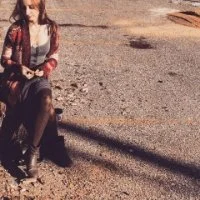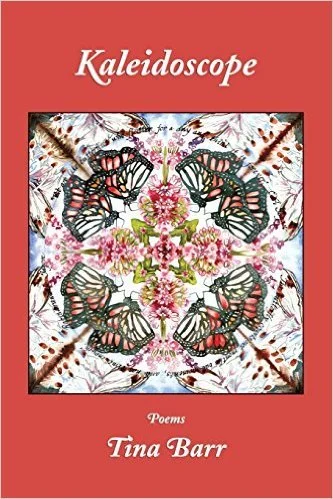In the "throw-things house" where the speaker of Patricia Colleen Murphy's debut collection Hemming Flames grows to adulthood, a father asks of his wife, "could you / try not to murder yourself / in front of the children." Murphy opens with Bolsheviks; her mother, a Stanford graduate, communist, a woman with mental illness; and the speaker finding her mother after another suicide attempt. This entry into the family is casual, the implication that it's a commonplace occurrence, that at the dinner table, peas passed in irritation, we come to that query and enter into a family with more to show than can fit in a dining room window peek, so the pane (pain) is thrown wide open.
Read MoreRuth Baumann’s chapbook, wildcold, opens with Rilke’s instruction, “Listen to the night as it makes itself hollow”. Here, I must admit my hesitance to dive into any work that prefaces itself with an oft-quoted (and often misquoted) poet. And here is where I am glad to say my literary-prejudice had its teeth kicked in.
Read MoreTina Barr begins her latest collection of poems, Kaleidoscope (from Iris Press), with a perfect sonnet, “In the Kaleidoscope’s Chamber,” which ushers the reader into her colorfully patterned world. But, rather than using the kaleidoscope as a mere toy or object of whimsy, Barr’s speaker sees it as a truth device:
“The chamber fills with purple,
blue bruises, the open jaw of a dead father,
multiplies the tight eyes of liars, orange tubes
of trumpet vine, pink-tipped brushes of mimosa,
filaments sweet as what I concocted in bottles
from a perfume kit as a kid.”
Read More2015 winner of the Miller Williams poetry prize from the University of Arkansas Press, George David Clark’s Reveille, rings in each poetic section with a reveille, or a wake-up call. Clark defines and creates his own meaning for this term—the title Reveille creates a “call” for the rest of the book, transporting the reader into the author’s painterly world of “a lattice musics,” “a bathing suit red as tomatoes,” “the gloss of lacquered walnut golds and olives jigsaw,” and “the holy face plum-colored.” Clark uses touches of color to guide the reader through this imaginary world that borders on the holy, and the first section opens with “Reveille on a Silent Whistle,” with its angelic imagery of “Two seraphs in the live oak’s highest boughs are sleeping,/constructing minutely their crystalline fretwork.”
Read MoreChris Hutchinson frames his modern epic, Jonas in Frames, with quotations. The most fitting comes before the Prologue—Aristotle’s “Of all plots and actions the episodic are the worst.” Jonas in Frames presents the life of Hutchinson’s loveable protagonist and too-humble-and-bumbling-to-be-an-everyman, Jonas, in episodic bits of poetic prose. These episodic bits create a writing that is contemporary: a hybrid of both form and content. Jonas, our anti-hero is neurotic and socially awkward. His story is framed by his diagnosis, in the form of the “Lab Notes” that precede each chapter. Jonas recalls events in bits, yet his story ends with a poetic, modern Ginsberg-style rant, which merges events in popular culture:
Read More

